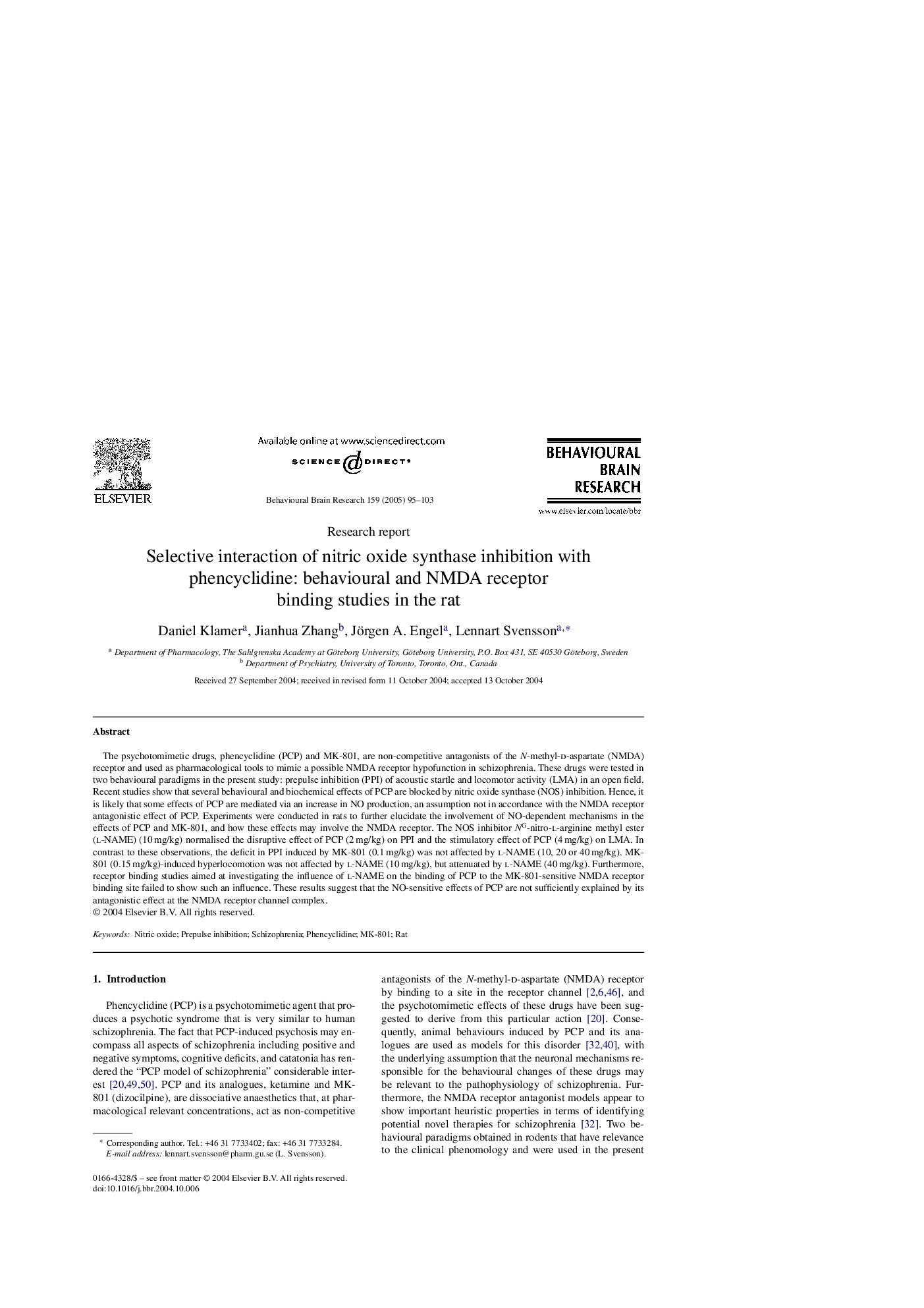| Article ID | Journal | Published Year | Pages | File Type |
|---|---|---|---|---|
| 9406666 | Behavioural Brain Research | 2005 | 9 Pages |
Abstract
The psychotomimetic drugs, phencyclidine (PCP) and MK-801, are non-competitive antagonists of the N-methyl-d-aspartate (NMDA) receptor and used as pharmacological tools to mimic a possible NMDA receptor hypofunction in schizophrenia. These drugs were tested in two behavioural paradigms in the present study: prepulse inhibition (PPI) of acoustic startle and locomotor activity (LMA) in an open field. Recent studies show that several behavioural and biochemical effects of PCP are blocked by nitric oxide synthase (NOS) inhibition. Hence, it is likely that some effects of PCP are mediated via an increase in NO production, an assumption not in accordance with the NMDA receptor antagonistic effect of PCP. Experiments were conducted in rats to further elucidate the involvement of NO-dependent mechanisms in the effects of PCP and MK-801, and how these effects may involve the NMDA receptor. The NOS inhibitor NG-nitro-l-arginine methyl ester (l-NAME) (10Â mg/kg) normalised the disruptive effect of PCP (2Â mg/kg) on PPI and the stimulatory effect of PCP (4Â mg/kg) on LMA. In contrast to these observations, the deficit in PPI induced by MK-801 (0.1Â mg/kg) was not affected by l-NAME (10, 20 or 40Â mg/kg). MK-801 (0.15Â mg/kg)-induced hyperlocomotion was not affected by l-NAME (10Â mg/kg), but attenuated by l-NAME (40Â mg/kg). Furthermore, receptor binding studies aimed at investigating the influence of l-NAME on the binding of PCP to the MK-801-sensitive NMDA receptor binding site failed to show such an influence. These results suggest that the NO-sensitive effects of PCP are not sufficiently explained by its antagonistic effect at the NMDA receptor channel complex.
Related Topics
Life Sciences
Neuroscience
Behavioral Neuroscience
Authors
Daniel Klamer, Jianhua Zhang, Jörgen A. Engel, Lennart Svensson,
